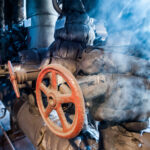Recent Blog Posts

Hydrogen Sulfide (H2S) Exposure in The Oil and Gas Industry: Risks and Prevention
The oil and gas industry in Louisiana plays a pivotal role in the state’s economy, providing employment and contributing significantly to energy production. With that said, the oil industry comes with inherent risks, including exposure to hazardous substances such as hydrogen sulfide (H2S). Injured workers in Louisiana’s oil industry have a right to seek… Read More »

How Faulty Safety Regulations Contribute to Oilfield Accidents
Oilfield accidents can lead to catastrophic and life-altering consequences for workers. Unfortunately, many of these accidents are preventable with due diligence on the part of the oilfield companies. A reputable Covington, LA oilfield injury attorney can collect evidence and prove the liability of the at-fault party and the oilfield company to get you the… Read More »

How Poorly Maintained Equipment Leads to Increased Injuries on Drilling Rigs
In the extremely high-risk setting of drilling rigs, there is no room for complacency when it comes to equipment maintenance. The correlation between poorly maintained equipment and increased injuries is undeniable. Unfortunately, drilling rig operators are known to neglect regular maintenance, technological advancements, and employee training to increase their profits. If you were injured… Read More »

Injuries From Hazardous Material Exposure in The Louisiana Oil Industry
The extraction and transportation of oil entail significant risks, especially in terms of potential hazardous material exposure. Workers in this industry face numerous challenges and dangers, and injuries resulting from exposure to hazardous materials are not uncommon. A dedicated Covington, LA oilfield injury attorney can help you understand your legal rights and get maximum… Read More »

The Link Between Noise Pollution and Hearing Loss in The Oil Industry
Working in the oil industry often means exposure to a variety of occupational hazards, one of which is noise pollution. While it is commonly known that oilfield workers face numerous physical injury risks, the long-term effects of noise pollution can be overlooked. If you or someone you love has suffered from hearing damage due… Read More »

Understanding The Psychological Impact of Oilfield Injuries
Oilfields are high-risk work environments, and injuries are unfortunately common in the oil and gas industry. While the physical toll of these injuries is evident, the psychological impact can be equally profound, affecting not only the injured worker but also their families and co-workers. If you or someone you love experienced injuries at an… Read More »

The Importance of Keeping Accurate Records in a Personal Injury Case
The importance of maintaining proper documentation and medical records in personal injury cases cannot be overstated, as medical history and documentation alone can make or break your chances of receiving rightful compensation. From the moment an accident occurs to the final resolution, maintaining a detailed account of your life, events, medical treatments, financial losses,… Read More »

Radiation Hazards and Injuries in Offshore Oil Platforms
It’s a widely accepted fact that oil and gas production is one of the most hazardous jobs. Oilfield operations expose workers to the risk of severe injuries and fatal accidents. Unfortunately, workers on offshore oil platforms have another thing to worry about – toxic radiation from radioactive products and waste. If you or someone… Read More »

The Connection Between Sleep Deprivation and Oilfield Injuries
Hundreds of oil and gas workers in Louisiana have lost their lives in fatigue-related accidents. This is one of the key causes of worker fatalities in the industry. If you were injured on an oilfield because your employer forced you to work for long hours in arduous conditions or because of the sleep-deprived negligent… Read More »

Mental Health and Oilfield Injuries
There is a growing focus on mental health disorders related to on-the-job injuries and illnesses. In fact, it has become a serious public health issue worldwide. The dangerous nature of the oil and gas industry often results in workers suffering from long-term mental health problems following a severe work-related accident. Post-traumatic stress disorder (PTSD),… Read More »



